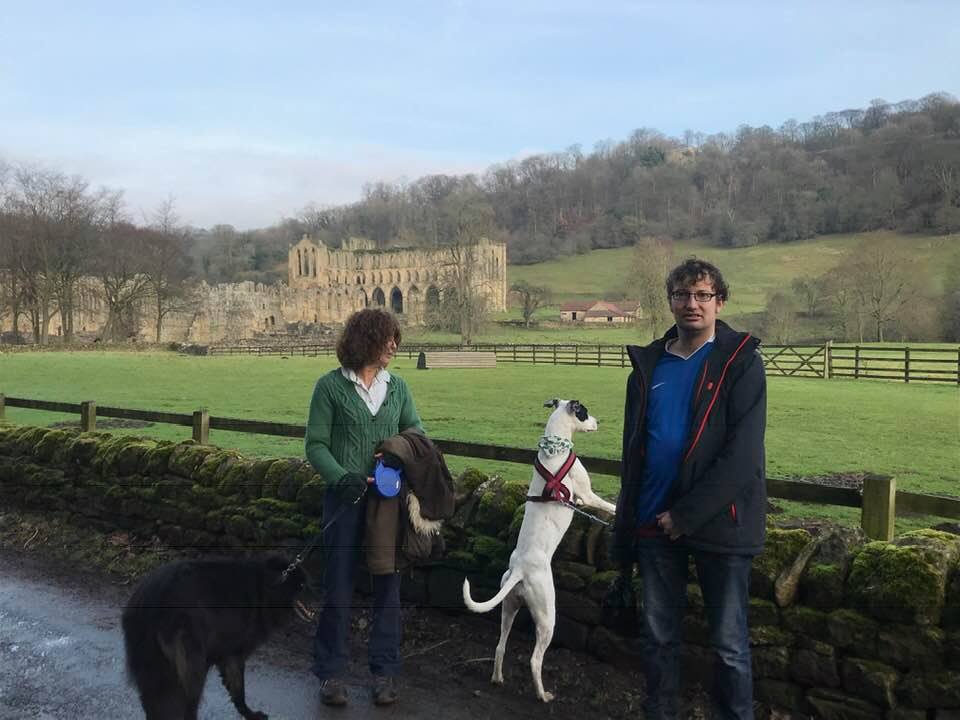|
Highlighting the importance of language for the way we think, the human philosopher Ludwig Wittgenstein asked: ‘A dog can look forward to seeing his master. But can he look forward to seeing his master next Wednesday?’. My humans – who think I’m merely an ordinary dog – seem to spend a long time wondering what my mental life - my thoughts, emotions, and so on – are like. ‘What does it mean for Lola to ‘think’ rolling in fox poo will make her a better hunter?’, they ask in vexed tones. I also wonder: even if most dogs did speak a language, given that dogs’ lives are so different from humans’ lives, would anything dogs say make sense to their humans? Wittgenstein seems to have something similar in mind when he says, ‘If a lion could speak, we couldn’t understand him’. Perhaps, in spite of our shared lives, the same is true in relation to humans and dogs. Language is of course essential to narrative and to story-telling, and so telling a story from a dog’s perspective is particularly challenging. Can justice be done to the otherness of dogs in relation to humans through a story? Or should a dog’s mental life be translated into human thoughts and emotions, so that humans – whose imaginations are rather limited – can understand dogs’ lives by analogy to their own? With these questions in mind, I greatly enjoyed reading a new novel by the human philosopher David Cooper - Street Dog: A Sri Lankan Story. Cooper adopts the latter, more analogical, approach, while drawing attention to specifically canine ways of experiencing the world – ‘the world was, above all else, a great lattice of smells’ – and while highlighting things of value and importance to dogs – food and security, but also companionship and affection, especially the companionship and affection of humans. This way of conveying a dog’s mental life is of course less demanding for the reader, and so allows other elements of the story to come through – life as a street dog in a Sri Lankan city; in remote countryside; in a monastery; in a domestic setting. I’ve never been to Sri Lanka and I’ve never been a street dog, but it seemed quite natural to imagine myself there and to understand the excitement and the dangers faced. I also liked Street Dog because in it we see the profound effects of human fear, neglect and cruelty – but also of human kindness, warmth and generosity – on dogs’ lives. Although I love reading philosophy, this is something stories can do in a way academic philosophy cannot – rather than telling us a fact (such as: ‘human kindness affects dogs’ lives profoundly’), stories instead show us the fact. Stories can do what academic philosophy often can’t because stories can show us that the effects of human kindness, or cruelty, or generosity, or whatever, are ‘like this’. Street Dog is Cooper’s first novel, but he’s well qualified to write on the topic. He’s lived and spent time in Sri Lanka and continues to visit there, taking part in humanitarian projects. The story brings together a broad range of philosophical topics he’s written on, including humans’ relationships with non-human animals, ethics, and Buddhist aesthetics and attitudes to nature. And importantly, he’s known and lived with various dogs over the course of his life. As is characteristic of Cooper’s philosophical work, Street Dog is wise and humane. Being a great philosopher doesn’t necessarily make someone a great story-teller, but Cooper is adept at both. I found myself sad to reach the end of the story – but happy to learn that a sequel is afoot. If you want to get your paws on a copy, you can find the Kindle edition here. Alternatively, if you don't mind paying for the postage from Sri Lanka, you can buy the paperback edition here. Here’s a picture of me over Christmas, pondering the insurmountable gulf between dogs and their humans while looking down into the Yorkshire village of Staithes: And here I am again, with some humans, examining Rievaulx Abbey and pondering the passing of time and the frailty of creaturely existence while the humans posed for a photo: Later I was given a squeaky armadillo, and was less ponderous after that.
0 Comments
|
AuthorMental walkies with Lola, Archives
May 2019
Categories
All
|


 RSS Feed
RSS Feed
